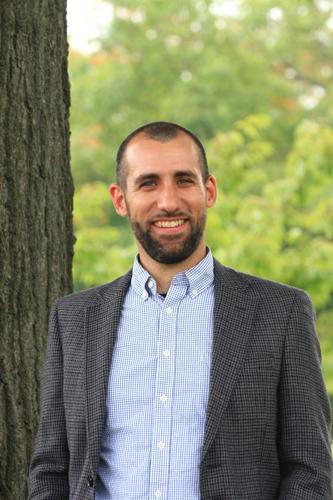As colleagues at Messiah University, we share a core belief that God created our world and that our call as humans is to practice a responsibility to that created order. This idea of creation care teaches that there should be no separation between caring for God's world and caring for the neighbor whom God asks us to love.
As educators we are active in sustainability efforts on our campus and in the broader community, because we recognize that the science is clear — climate change poses an imminent and dangerous threat to our home.
We see it daily in the news and hear it firsthand from our friends and colleagues out West: Wildfires, driven by record heat and drought, are consuming entire counties in California and parts of the Pacific Northwest and West. As of Oct. 8, the United States had seen 18 weather/climate disaster events with losses exceeding $1 billion each, according to the National Oceanic and Atmospheric Administration. They ranged from drought to wildfires to floods and, tragically, hundreds of people have died this year.
In Pennsylvania, rising average temperature and increased occurrences of heat waves and heavy rainfall events are the three most likely outcomes of climate change, according to the Pennsylvania Climate Impacts Assessment 2021 report. This report notes that Pennsylvanians who live in high-risk areas like urban centers will be at additional critical risk from rising average temperatures. These residents “are nearly twice as likely to experience more days hotter than 90 F, compared to the state average, and constitute over half of all Pennsylvanians exposed to highly frequent heat days,” the report found. As is often the case, the most vulnerable communities are experiencing the first impacts of this human-caused disaster.
We all need to take a greater role in addressing climate — now. We especially need federal legislation that elevates the efforts we are making locally to reduce carbon pollution, support agriculture and bolster clean energy, to name a few.
Pennsylvania’s college campuses already have made deep and continuing commitments to environmental action. At Messiah University, our community values ecological conservation, social equity and economic strength, and offers programs for students in environmental science, sustainability, conservation and agriculture. We are helping students find and create entirely new jobs in the growing green economy. Other schools across the state are training students to address the global climate problem by helping support urban agriculture and feeding people in their own community.
We also believe, and our experience has taught us, that at every turn, the support of the business community is essential to addressing these challenges beyond our college campus. In recent years, we have been encouraged by the growing participation in these efforts across the state, including the Regional Greenhouse Gas initiative, which is a prime example of how our environment and economy go hand in hand. We hope that the state’s entry into that initiative sparks a renewed sense of urgency.
However, we need this action to take place beyond our campus and beyond our state. Unfortunately, the federal infrastructure plan approved by the U.S. Senate did not include funding for a Civilian Climate Corps, a program being championed by Democratic Sen. Bob Casey. It would help our country develop the infrastructure needed to allow renewable energy sources to be more thoroughly integrated into our economy and provide skills training for the new jobs that are being created.
This is disappointing, because a bold plan is necessary for this fight: one that expands clean energy, cuts pollution from power plants and oil and gas wells, and gets more electric vehicles on the road. The plan also needs to account for all sectors of our economy, including agriculture.
Climate change poses an imminent threat to our commonwealth, and solving it will take a commitment from the local level on up. Right now, we need federal action that supports the efforts that we are making locally on our campus and in our state — before it’s too late.
Brandon Hoover is director of sustainability and adjunct instructor in biological sciences and sociology, and David Foster, Ph.D., is a professor of biology and environmental science at Messiah University.





